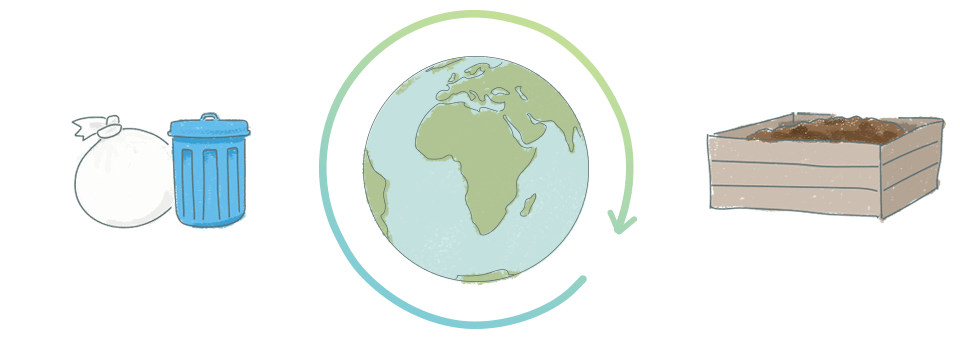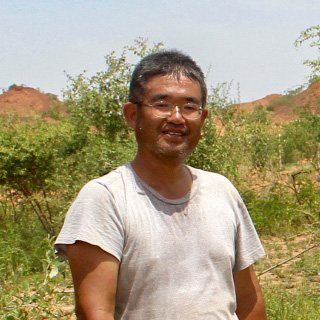Project Outline
Returning to nature what is obtained from nature

People, materials, and waste are concentrated in the cities. On the other hand, there are areas that suffer from forest destruction, desertification, and degradation of farmland. The organic wastes, namely food waste and feces that accumulate in the urban areas are originally obtained from nature. To restore the environment and nature and improve agricultural production by returning these organic materials to nature, we will conduct research on the actual state of the production, consumption and disposal of organic wastes and verify from a scientific point of view. Together with local residents, this project will create new values towards organic waste, and will create a “Biomass Circulation System” that returns urban organic waste to degraded land in Africa and South-East Asia, and Japan. This project will connect lives through the circulation of waste between cities and rural areas.
Based on the principle of returning to nature what is obtained from nature, we are creating a biomass circulation system that contributes to environmental restoration and the improvement of agricultural production. We return urban organic waste to degraded land in sub-Saharan Africa and Asia including Japan. In the Sahel region of the Republic of Niger, we have been working with local residents, municipalities, and the central government to green the degraded land using organic waste for 20 years. We aim to contribute to the lives of local residents and to the prevention of ethnic conflicts among farmers and herders.
Background and Goals of Research
The world population is expected to reach 10 billion by 2050. The number of megacities - cities with populations of 10 million or more - is also increasing. Cities collect and consume a lot of food, energy, and other resources from their surroundings and around the world, but the unconsumed nutrients are not actively returned to farmland or to the natural environment.
Under natural conditions, it can take as long as 1,000 years for 1cm of soil to be formed. In addition to economic disparity, food shortages and hunger, there is a serious problem of food loss in many parts of the world. There are fears that the production of food will not be able to keep up with the demand because of land degradation. This is due to overuse of land and soil erosion caused by agriculture and pastoralism. We prefer that our food is “clean”, and the organic waste and manure we throw away are abhorred as dirtiness. In Japan, most of the organic waste is incinerated, with the ashes going to landfills instead of being used in a valuable manner. In this way, Nutrients do not circulate in the ecosystem.
In order to achieve sustainability with urban-based civilization in the future, it is necessary to accept the producing of dirtiness from cleanliness as a natural consequence of human activity. We need to understand the importance of the rebirth of life through such dirtiness, and to situate human existence in the earth system more appropriately. This project hopes to promote a shift in thinking, and values towards ones that seek to build a material cycle between urban and rural areas.
